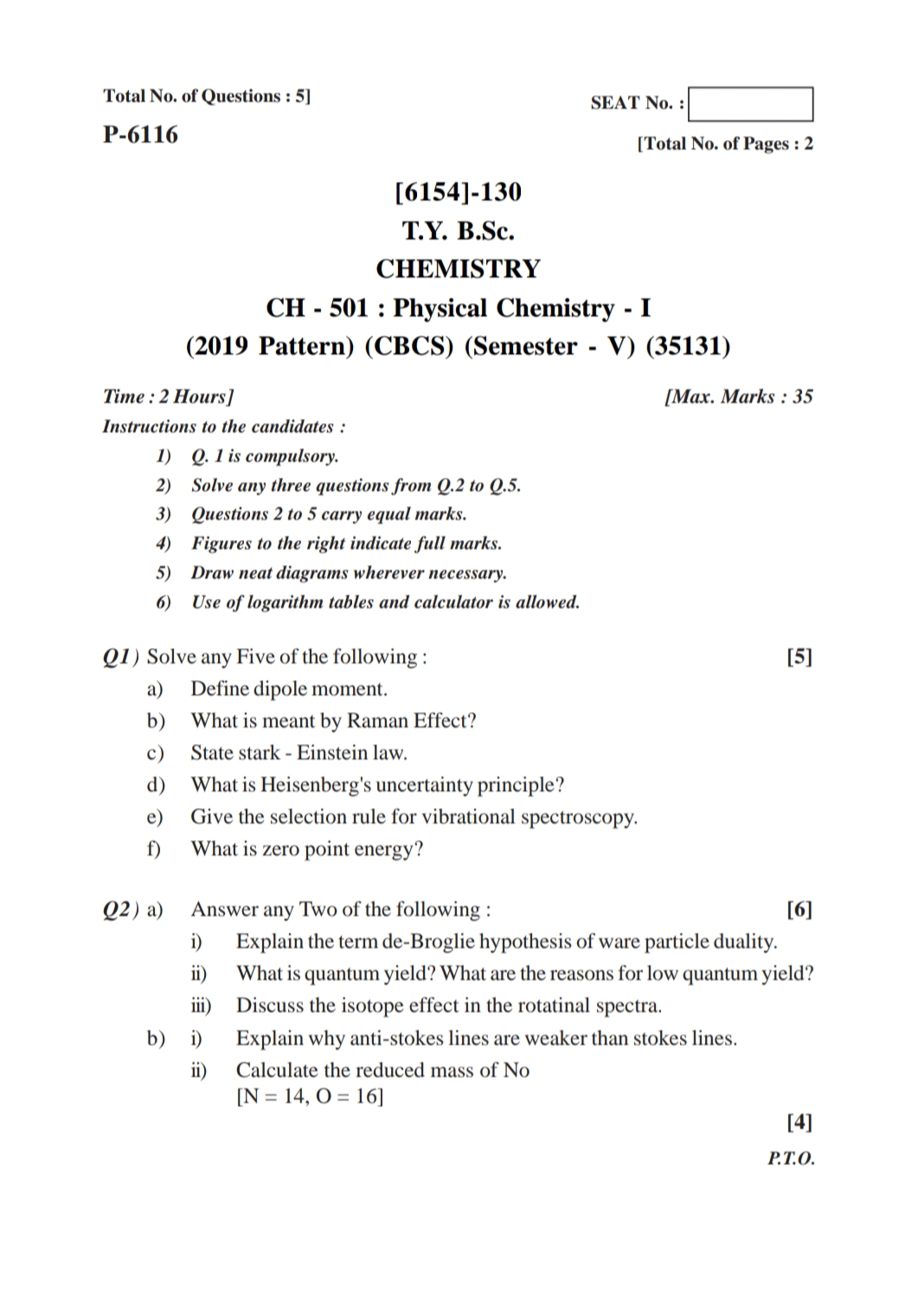Solve any Five of the following: a) Define dipole moment. b) What is meant by Raman Effect? c) State Stark - Einstein law. d) What is Heisenberg's uncertainty principle? e) Give th... Solve any Five of the following: a) Define dipole moment. b) What is meant by Raman Effect? c) State Stark - Einstein law. d) What is Heisenberg's uncertainty principle? e) Give the selection rule for vibrational spectroscopy. f) What is zero point energy?

Understand the Problem
The question paper includes various topics related to physical chemistry, asking the candidates to define concepts, explain principles, and perform calculations related to quantum mechanics and molecular structure.
Answer
a) Separation of charge in a system. b) Light scattering with wavelength change. c) One photon causes one molecule reaction. d) Cannot know position and momentum precisely. e) Non-zero dipole moment change. f) Lowest energy level due to quantum effects.
a) A dipole moment is a measure of the separation of positive and negative charges in a system.
b) The Raman Effect refers to the scattering of light with a change in wavelength, revealing information about molecular vibrations.
c) The Stark-Einstein law states that each photon absorbed by a chemical system can cause the reaction of one molecule.
d) Heisenberg’s uncertainty principle asserts that certain pairs of physical properties, like position and momentum, cannot both be known to arbitrary precision.
e) The selection rule for vibrational spectroscopy is that the change in dipole moment with respect to a molecular vibration must be non-zero.
f) Zero-point energy is the lowest possible energy that a quantum mechanical physical system may have, and it is due to quantum fluctuations.
Answer for screen readers
a) A dipole moment is a measure of the separation of positive and negative charges in a system.
b) The Raman Effect refers to the scattering of light with a change in wavelength, revealing information about molecular vibrations.
c) The Stark-Einstein law states that each photon absorbed by a chemical system can cause the reaction of one molecule.
d) Heisenberg’s uncertainty principle asserts that certain pairs of physical properties, like position and momentum, cannot both be known to arbitrary precision.
e) The selection rule for vibrational spectroscopy is that the change in dipole moment with respect to a molecular vibration must be non-zero.
f) Zero-point energy is the lowest possible energy that a quantum mechanical physical system may have, and it is due to quantum fluctuations.
More Information
These concepts are fundamental in physical chemistry and quantum mechanics, each describing essential phenomena in molecular physics and energy states.
Tips
Avoid confusing dipole moment with molecular dipoles; remember it applies to any charge separation. Zero-point energy is not the absence of energy but the minimum energy state.
Sources
- Heisenberg's Uncertainty Principle - Chemistry LibreTexts - chem.libretexts.org
- Uncertainty principle - Wikipedia - en.wikipedia.org
- Molecular Quantum Mechanics Fifth edition - nanoer.net
AI-generated content may contain errors. Please verify critical information